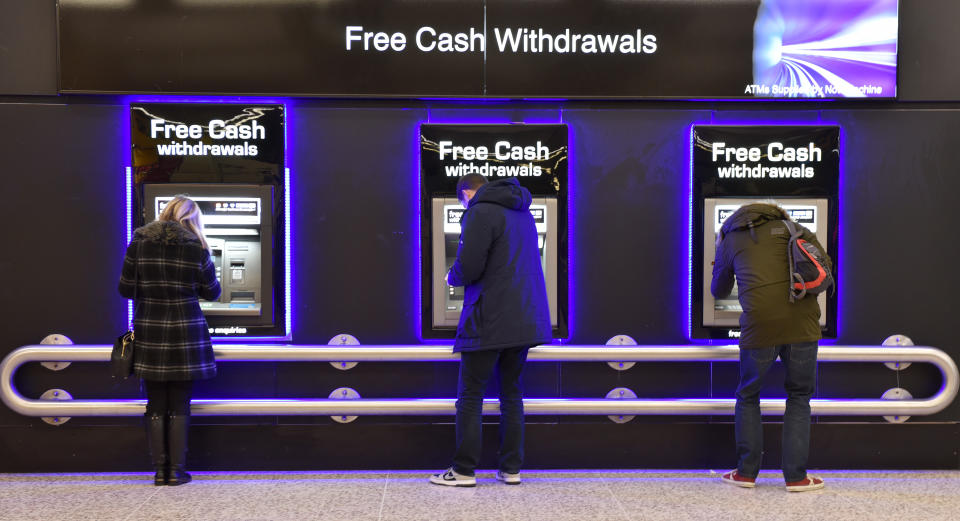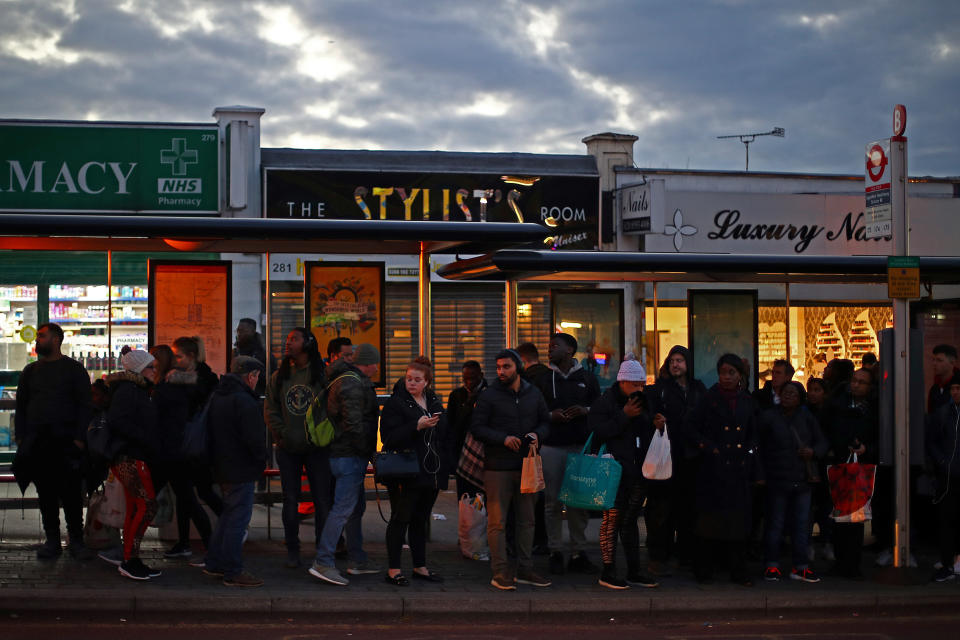UK wage growth slows as small firms 'struggle to raise salaries'

Business leaders have warned small firms are “struggling to raise salaries” as official figures show average wage growth slowing in the UK.
New figures show actual pay growth of 3.4% between September and November excluding bonuses, down from 3.5% between August and October.
Tej Parikh, chief economist at the Institute of Directors (IoD), said wage growth had “disappointed” in recent months.
“In particular, small businesses have been struggling to raise salaries to attract new staff, and they will be hoping for cost-cutting measures at the March Budget, alongside more investment in the UK’s gummed-up skills system,” he said.
READ MORE: UK employment hits record high as Bank mulls rate cut
Parikh also said the pay data “may provide motivation” for the Bank of England to slash rates, but noted policymakers would also be looking at more recent post-election data.
But the data published by the Office for National Statistics (ONS) on Monday shows average UK pay growth continuing to outstrip inflation despite a slight slowdown.
The ‘real’ value of average regular pay growth after adjusting for inflation was unchanged at 1.8%, helped by a corresponding slight drop in price growth.
Earnings growing faster than prices spells good news for the average worker’s spending power, as otherwise the real value of pay rises can be wiped out.
The latest figures come a week after separate data from the ONS showed inflation sinking to its lowest annual rate in more than three years last month.
READ MORE: UK inflation falls to new three-year low, putting pressure on Bank of England
The price of everyday goods rose by an average of 1.3% in the year to December, with the price of hotels, restaurants, footwear, and women’s clothing falling.
The low inflation benefits shoppers, but partially reflected struggling retailers discounting and sounded alarm bells over the underlying strength of the economy.
Analysts had expected a 1.5% rise in inflation, and the Bank of England’s remit includes a 2% target for price growth.

The latest official ONS weekly earnings figures show average regular pay before tax for employees came in at £511 a week in November.
But in real terms pay is still £1 a week lower than its pre-downturn peak in 2008. Average British workers have seen one of the biggest squeezes on pay in decades since the financial crisis.
Rising employment has eventually pushed up average real wages, which were trending higher from 2017 until recent months.
Britain has seen a ‘jobs boom’ that has increased workers’ bargaining power, forcing some organisations to pay more to attract and keep staff.
READ MORE: ‘Awful’ productivity of UK workers puts pay rises at risk
The Resolution Foundation think tank warned earlier this month that Britain’s “awful” productivity growth over the past decade was now the biggest threat to future pay rises.
The ONS notes that its figures reflect changes in the labour market as well as pay rises, as an increase in high-paid jobs would increase average wages.
Frances O’Grady, general secretary of the TUC, said on Tuesday: “The long-promised return to healthy pay growth still hasn’t happened and working families are being forced into the red to get by.
“No more excuses: the government needs a plan to boost workers’ pay and living standards.”

 Yahoo News
Yahoo News 